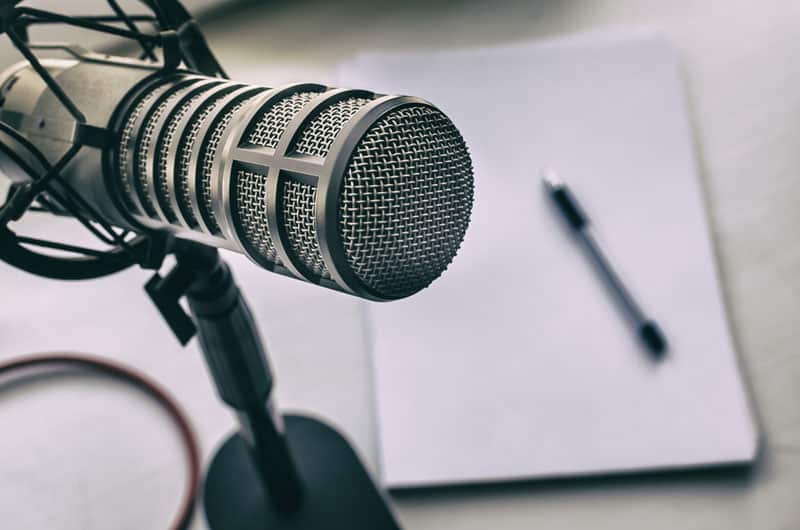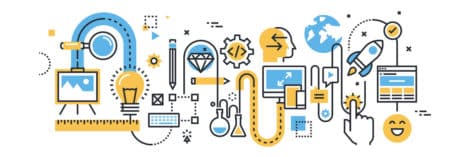
Over 500 episodes. This is the record that David Shriner-Cahn can be proud of, a podcaster from New-York whom I had the pleasure to interview. David started his podcast in 2014 and has a lot to teach us about his secrets of longevity and success. Not only has he never missed a single deadline for his publications, but he has also managed to turn them into a business.
In this article that I dedicate to him, I would like to highlight 2 crucial lessons for all the entrepreneurs who read my articles, but also for all those who are passionate about search engine optimisation (SEO). These lessons complement the feature article I devoted to my own experience of podcasting.

Lesson 1: The process for being more efficient
David began his entrepreneurial adventure on the Internet through a blog, which started in 2012. It was only 2 years later that he began podcasting and gradually gave up writing. In this interview, he explains how the implementation of processes has allowed him to produce more content without increasing his working hours. At a time when everyone is trying to make a place for themselves on the Internet, I think this is a fundamental lesson.
Writing is costly (a good blog article can be negotiated in big agencies up to 1000€). Unfortunately, entrepreneurs have little time to devote to their online promotion—those who do inevitably benefit in terms of long-term visibility (SEO). But the process is gruelling and requires discipline. Back when he was a blogger, David produced written interviews that allowed him to set up automatisms in terms of form. The requests he received for more in-depth content prompted him to move into audio interviews (i.e. podcasts). His previous automatisms will have inevitably helped him.

Lesson 2: What is the purpose of a podcast?
The feedback of David Shriner-Cahn also refers us to the usefulness of the podcast as a tool for inbound marketing. If you want to make podcasting an activity in its own right, building a broad audience and traffic is essential. And to achieve this, you will need to make sure you have topics to cover (implying you will need to convince guests to spend time with you) and you will need to be good at promoting your podcast. On this subject, David gives us an interesting lesson:
I’ve discovered that people who are not known are the ones who most want to be invited for a podcast and who are the best at promoting it.
At first glance, this seems somewhat counter-intuitive, and yet it also corresponds to my experience. I have interviewed a few reasonably well-known people, and they generally put little energy into promoting the episode. On the contrary, the lesser-known entrepreneurs are the ones who kept their commitments to promote the episode.
Conclusion
I’ve already written what I think of podcasting as an inbound marketing and SEO tool. I refer you to my analysis on the subject. To complete this topic, what David’s experience shows us is that on the one hand, the regularity of publication is a prerequisite for success; on the other hand, an efficient work process is a way to achieve this.
If there is only one thing to remember from this podcast, it would be that establishing a process as automated as possible from the 1st episode of his podcast will allow you to put all the chances of success on your side. To receive personalised advice, consider subscribing to our newsletter.
Images d’illustration : shutterstock
Posted in Entrepreneurship, Marketing.

